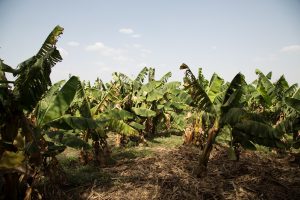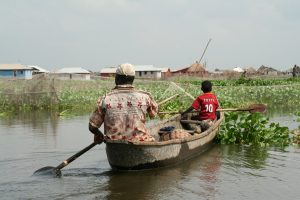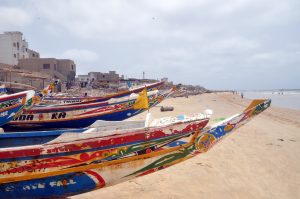
Vulnerability assessments are an important part of a country’s National Adaptation Planning process, providing evidence for adaptation practitioners to make informed decisions about where adaptation action is needed most.
Supported by Climate Analytics through the project “Science-based support for NAP processes in francophone Least Developed Countries of sub-Saharan Africa” (PAS-PNA)[1], the governments of Benin, Burkina Faso and Senegal conducted nine vulnerability assessments, based on capacity building and participatory approaches.
Participatory approach to assessing multiple sectors
In each country, the methodology and scope of the studies were developed in close collaboration with and the approval of a wide range of stakeholders and based on the concept and guidelines of the Vulnerability Sourcebook. Specific research groups were formed to conduct the assessments in three focus sectors in each country:
- Agriculture and water resources were covered in all three countries;
- Additional studies were conducted focusing on:
- the health sector in Benin
- coastal zones in Senegal
- soil degradation in Burkina Faso
Each research group brought together the relevant national scientific institutions for the respective sector (approximately 12 institutions for each sector) and was accompanied by a monitoring committee of policy-makers, local authorities, civil society and the private sector.

Why a participatory approach to vulnerability assessments?
Through this multi-stakeholder approach, decision makers got a thorough insight and knowledge about the underlying science and research on vulnerability and adaptation in the different sectors. Conversely, scientists involved in the studies gained insights into policy processes at different levels, and consequently the policy-relevance of their scientific studies.
The participatory approach allowed to have a pool of experts in the three countries for future vulnerability assessments. This is an important aspect since other sectors have to be analyzed as well and vulnerability assessments should be living documents that have to be updated regularly in order to take new aspects into account.
Furthermore, by implying actors from the governance institutions, the results from the vulnerability assessments can more easily be taken into account in national, sectoral and local policies and strategies that integrate climate change.
Next steps for advancing NAP processes in Benin, Senegal and Burkina Faso
“Following the multi-stakeholder approach for the vulnerability assessments that strengthened the capacities of the different stakeholders involved, their results will be used to develop bankable adaptation projects in a participatory manner,” describes Nele Bünner (GIZ), head of the PAS-PNA project.

Besides that, the results of the different assessments have been and will be used for the development of different planning documents. In Benin, the National Adaptation Plan, that is currently in the phase of development, will consider the results of the analysis for the three sectors that have been covered. In Burkina Faso, the information from the vulnerability assessment on water resources has been used for the integration of climate change into the National Water Strategy. The Senegalese National Action Plan for Integrated Water Resources Management has been updated and climate proofed using also the information available in the Senegalese vulnerability assessment. Furthermore, the Communal Development Plan of Keur Saloum Diané in the Fatick Region of Senegal takes into account climate change by referring to the results of the assessments.
Thanks to the participatory approach and based on these experiences gained in using the information from the vulnerability assessments, the integration of climate change into further national, sectoral and local strategies and plans is already in the pipeline of the three countries.
The vulnerability assessments from Benin, Senegal and Burkina Faso are available (in French) via the Climate Analytics website.
Any opinions stated in this blog post are those of the authors and do not necessarily reflect the policies or opinions of the NAP Global Network, its funders or Network participants.